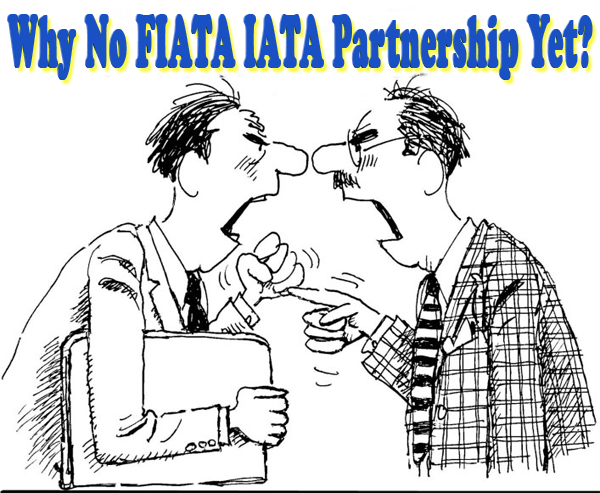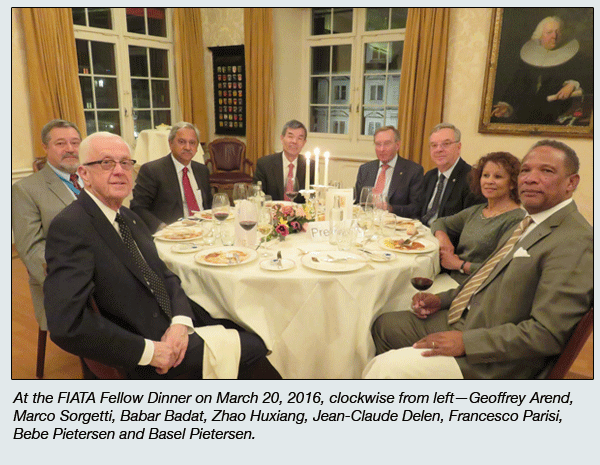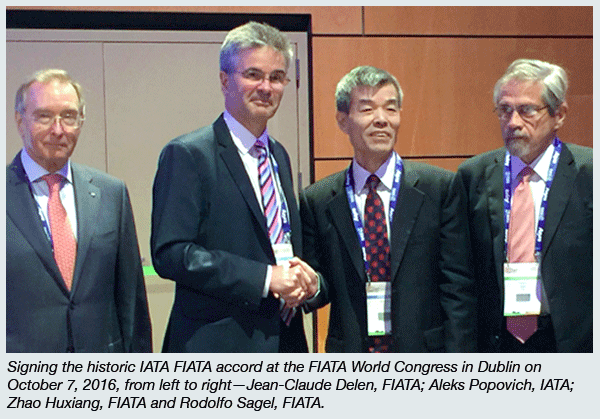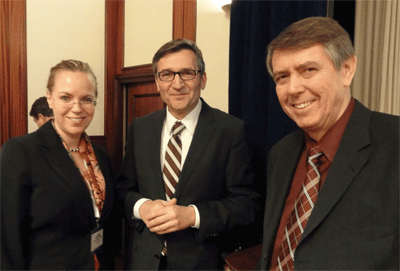 |
When I think of airfreight these days I
get a different reflection depending on the viewpoint, like entering Hendrix’s
“Room
Full of Mirrors” and I get dizzy, as though I was looking at
it through the Pretenders’ dazzling version
In a way this is not surprising, if you
look at the figures
monthly published by ICAO.
The yo-yo feeling you get by looking at
airfreight rates that are on a rollercoaster ride for months now, capacity
going up and down, is unprecedented. Mostly we hear complaints that capacity
is scarce or unbalanced, in particular in recent times, but the full picture
is more complex. If the anticipated recovery outside of the U.S. accelerates,
as other areas get out of the COVID 19 meltdown, we shall see even brisker
moments.
Fact is air cargo now represents something
like 1/3 of all airlines’ revenues and these sheer figures give
the flown cargo a status that it has never historically had. In this light
I am at a loss to understand why (as we have learned) the air cargo modernization
talks between FIATA and IATA have been discontinued, leaving our sector
with a hot potato in hand: a potato that has been cooking for decades
without reaching the point of being served, despite the efforts, the personalities
and the money devoted to this endeavor.
Again this looks like a box full of mirrors
where airlines appear to be scared to get in, IATA sitting at the door
with CASS playing the role of the bouncer . . . difficult to hear the
music from outside.
If you read in IATA’s mission, they
stipulate – in their own words – that
•
We build standards through expertise
•
We champion the global big picture
•
We partner for mutual benefit
•
We act with a simple human touch
I would argue that the considered cargo
modernization program was ticking all these boxes and for a long period
it was making all the right noises.
I believe Sir Patrick Geddes coined the
phrase “think global, act local” or thereabouts the intention
. . .
Well, perhaps this is what FIATA and IATA
should have done together, unless other more mysterious motivations were
moving the pieces in their chess game.
 |
Word Up From A FIATA Fellow
My second thought is to imagine a future
scenario in which we should try and be as open as possible about the situation
right now with global forwarders and airlines; if we are not happy to
look at this now, a situation which is patchier and more divided than
the cooperation was, when the modernization talks started.
For once, let me use my role as a FIATA
Fellow, and expend a couple of words in favor of this great association.
In so doing, I believe I shall be of service
to the other great association as well, IATA.
Simply pandering to the revenue base of
the airlines is not helpful at this point in time. If you look at the
global picture you want to be dead sure that there are going to be airline
revenues in the future indeed, and you do this by ensuring decent collaboration
with your customers.
If they are passengers, these are voters
protected by their political representatives.
As the adage goes, cargo has no voice or
votes . . . and that is precisely where you need a strong agreement to
make it work well.
Again this is one of the sticky points:
some of the airlines struggle to understand who their customer is. I daresay
this is not a good start if airlines are planning on a commercial resurrection.
 |
Who Calls The Shots?
The airlines’ passenger needs normally
call all the shots now and especially in the past. The decrease in passenger
flights in the pandemic and subsequently decreased belly capacity has
produced a noticeable increase in all-cargo operations in a season for
aviation that will surely be remembered as the worst in a long, long time.
In other words, the air cargo sector seems
to be the only area in aviation that is out of immediate peril and benefitting
from a customer base that has been relatively stable both in revenue and
in margins, despite the ongoing challenges.
So one could wonder what exactly is the
issue, why there is no happy ending to a suit that lasted decades: were
it not love, it surely wasn’t hatred.
Unless this is unexpectedly the happy ending
for some indeed.
If the airlines were not reduced to life
support by the pandemic, perhaps the picture would look substantially
different and IATA’s role would shine in a different light.
Looking For Higher Ground
IATA Cargo is not out of the emergency room
yet, personnel wise there is work to do and holding a CNS event in Miami
in August may prove challenging. FlyingTypers did publish consideration
for future face-to-face
events about one month ago: the professionals we had consulted were
not sure about the time when gatherings would go back to normal. So this
is not firm ground for IATA, much less for its former head of cargo, Glyn
Hughes, who took the IATA package with him and is now trying to give TIACA
a shot in the arm.
There is expectation in the industry, but
TIACA’s revenue base was notoriously reliant on the revenues coming
every second year form their big bash.
So, what the future has in store for this
historical, distinguished representative of the air cargo interests remains
to be seen.
FIATA/IATA Cooperation Still Paramount
As far as I am concerned I have long thought
and am adamant that a fair and balanced update of the FIATA/IATA modernization
efforts is required, if only to follow what we heard in Dublin during
the FIATA World Congress in 2016, where I delivered the Keynote
Address where the FIATA/IATA modernization effort was announced, and
I suppose this comes as no surprise.
Starts & Ends With CASS
But the unresolved issues remain intact,
unfortunately, let alone the fact IATA Cargo has lost some of its resources.
As far as I can see it all starts and ends
with CASS. The IATA edicts that hardly please the airlines and invariably
manage to upset some forwarders, if not all of them, seem to produce ripples
that are always difficult to settle. Canada is the place where it all
should have started with a parade, but the parade finished in the Great
Lakes, so cold that the program died in frost.
I hear from Canadian friends, albeit not
officially, that Canadian agents are now worse off than when the talks
started.
Divide & Conquer?
A blame game is far from my intentions.
Considering one of IATA’s main objectives
is to protect airlines’ money, as one could hear in the side-lines
of their meetings, this is precisely the moment when IATA’s interest
is better served by a vital agreement with FIATA; where forwarders are
protected by their coveted brand and provide the airlines with the financial
security they are so keen to achieve.
This is particularly true in a period when
the market is running on a rollercoaster and forwarders appear to be the
only industry standing on its own feet. So get on with it and get it done,
folks!
What we hear instead is that forwarders
will be given a stronger voice in the regional councils, and this is presented
by IATA with a certain degree of pride. If you read this upside down,
you understand that somebody in IATA could have decided to adopt the “divide
and conquer” cliché, in hopes of having a better position
at regional level.
Set The Record Straight
This could be slightly
naïve and certainly not in line with history, as FIATA has been pretty
effective in unifying the freight forwarders, and has consistently been
representing them, both at the global and regional level, the only exception
in the world being the U.S., where a different agreement exists. The U.S.
industry organization AfA, led by Brandon Fried, is not a FIATA member
and is running a different show.
On the other hand, FIATA managed to pull
all sorts of members into the modernization talks, behemoths like Schenkers,
DHL and Kuhne & Nagel, as well as more regional and even smaller players.
The sceptics who thought FIATA would have trouble in finding this accord
were proven wrong by facts. In the meantime, FIATA even managed to move
from Zurich to Geneva, physically closer to IATA. Whether this proximity
will produce a closer collaboration in future remains to be seen.
 The
Willie Walsh Factor The
Willie Walsh Factor
After all this time, new people are bound
to show up at IATA.
I am wondering whether Willie Walsh at IATA
is out to change everything . . . The COVID situation, which is rapidly
bringing airlines sometimes literally to the ground, has given this fine
gentleman a pretty rare opportunity: anything he might want to do will
probably have a chance to fare undisturbed, and this is not an image often
envisaged in these parts.
Here Is An Idea For 2025
I shall try to give you an example: now
in 2021 some Pan Am retirees want to celebrate by hanging up plaques and
other stuff all over the place to heighten the airline’s reputation
thirty years after Pan Am went out of business.
We all regret the demise of Pan Am, but
the best idea would have been to stay in business indeed and avoid having
to celebrate your own departure in thirty years’ time.
I hope this is not too crudely put, for
suggesting talks between airlines and forwarders are de rigeur NOW more
than they have ever been.
On April 19, 2025 can we celebrate the 80-year-old
IATA with a global, functioning agreement on air cargo? Let me put it
in a way that could sound just as cheeky: Lyndon Johnson, an exemplary
U.S. president probably overshadowed by the more compelling JFK, once
observed that it was better looking outside from inside the tent, rather
than into the tent from the outside, or befitting him, was it another
verb he used?
 I
would prefer to advance what FIATA is doing, allowing for as much room
as it takes for time to finally change IATA reckoning and come to a historical
agreement, possibly valid for the entire world including the USA. I
would prefer to advance what FIATA is doing, allowing for as much room
as it takes for time to finally change IATA reckoning and come to a historical
agreement, possibly valid for the entire world including the USA.
In an exclusive interview
in these pages with Brandon Fried on Afa, it was reassuring to know that
Brandon is still full of energy, as he says.
Considering the period we live in, that
seems to be an achievement in itself, but perhaps the strength of the
American industry could give the global forwarders a boost in talking
to IATA at a different level and making them think of the advantages in
reaching the global agreement. Brandon is best equipped to decide whether
he wishes to put that record in his legacy. It is a possibility.
Am Always Hopeful Dear Readers
In the worst period in aviation for decades,
which appears to be unsuitable for great minds to find common ground,
the realpolitik of inevitability will probably take everybody captive
in the scheme and bring about swift progress.
Let me wish that – against all odds
– the parties find their own reasons to share in a new program and
eventually reach a really happy ending for air cargo. There is always
a bottle in the fridge here in Queens, where I live.
I would be glad to use it for a really good
reason!
Geoffrey
 That
Was Cooperation . . . That
Was Cooperation . . .
Time stamped April 30, 2011—A decade ago in the picture are
left to right Jenni Frigger-Latham, Vice President Sales & Marketing
EMO Trans, Harald Zielinski, then Lufthansa Cargo’s Head of
Security and Environment and the late Jo Frigger, EMO Trans Chairman
at an EMO Trans outreach meeting.
Harald raised the question in 2011,
of whether consistently tougher and more security regulations imposed
by state authorities like Washington’s TSA might threaten future
growth of air freight.
“From my practical point of view,
an increasing number of regulations established by both the TSA and
the European Union mean more and more challenges for the airlines.”
Harald called for more cooperation between
airlines and forwarders, strongly opposing any increasing development
of different security regimes on a global scale.
“We desperately need a harmonization
of the international security measures in our global industry,”
Harald said.
“Cargo security all around the
globe is currently focused only on one national rule – that
of the U.S.”
Jo Frigger added:
“My greatest concern is that any
customer not complying with TSA’s and Customs’ rules is
in danger of losing business right on the spot.
“Our job is to help customers
find their way through the jungle of regulations.”
We can only wonder why if progressive,
forward-thinking companies like EMO Trans and Lufthansa of their own
initiative, by engagement, have found ways to work for the common
good of air cargo, the message has not been joined by organized air
cargo?
Your move . . . |
|




 No matter that we were never sure why The
Lone Ranger wore a mask either.
No matter that we were never sure why The
Lone Ranger wore a mask either. 

